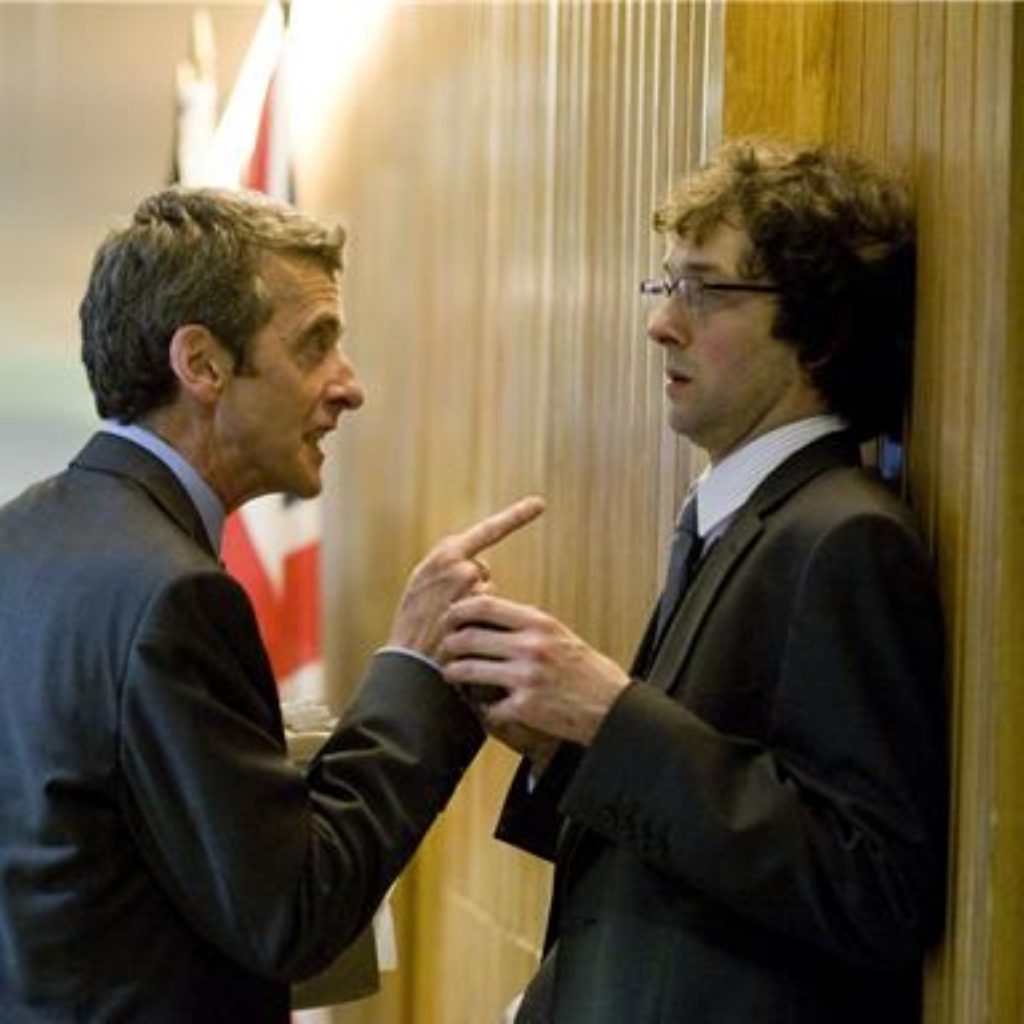The top five political ‘f**ks’
Boris Johnson's expletive explosion against London mayoral rival Ken Livingstone in a crowded lift is not the first time the f-word has passed the lips of a politician. Here's the top five recent moments when leaders felt no other word could do their feelings justice…
5) Alastair Campbell, 2005
We begin with a usage from the man who, as Tony Blair's head of communications, was something of a past master at the poetic use of swearwords. This one came in an email apparently accidentally sent to BBC's Newsnight programme. Campbell was objecting to a story about Labour's election posters when he advised journalist Andrew McFayden: "Now f*** off and cover something important you twats!"
This was rather regrettable, as the spin doctor quickly realised. Acknowledging that his language was "probably a bit colourful", he nevertheless blustered in a follow-up email: "Never known such a silly fuss since the last silly fuss but there we go. Must look forward not back."


4) Sir Richard Mottram, 2002
Senior civil service mandarins are supposed to be beacons of calm in a troubled world. They are smooth cogs in a well-oiled machine. They are efficient and professional. They do not lose their cool in the way that Sir Richard Mottram famously did in 2002, after it emerged press officer Jo Moore had suggested 9/11 was a good day to bury bad news.
"We're all f***ed," he said, in a moment of comically dark despair. "I'm f***ed. You're f***ed. The whole department's f***ed. It's been the biggest cock-up ever and we're all completely f***ed."
He was right: within months Sir Richard was swiftly moved sideways and his Department of Transport, Local Government and the Regions quickly broken up.
3) Joe Biden, 2010
The US vice-president is a curious job at the best of times, but Joe Biden seems to have an odd knack of making it curiouser and curiouser. Such was his excitement in 2010 that the Democrats had finally managed to pass major healthcare reforms that, at a ceremony in which Barack Obama was signing the legislation into law, he whispered into Obama's ear: "This is a big f***ing deal!"
Unfortunately for him the microphones picked it up. America, prudish at the best of times, was shocked, but the White House's press secretary Robert Gibbs chose to brush over the matter. "Yes, Mr Vice President," he tweeted glibly. "You're right."
2) Paul Gogarty, 2009
We have to cross the water to Ireland to come across the most vehement, uncompromising use of the f-word in a parliamentary chamber in recent years. It was a Friday, true, but the Green party's Paul Gogarty needed an excuse bigger than that for his conduct in the Dáil Éireann as he verbally lashed out against a Labour deputy, Emmett Stagg.
It was the transition from politeness to uncompromising swearing which was so striking about this thoroughly premeditated insult. "With all due respect in the most unparliamentary language," the unusually high-voiced Gogarty said, "F*** YOU, Deputy Stagg, F*** YOU!" Where on earth did that come from?
He was, of course, forced to grovel. "Members must not be thin-skinned in relation to political remarks," he said afterwards. "I was thin-skinned and I should not have used unparliamentary language and I apologise profusely to the House."
1) Boris Johnson, 2009
Yes, it's that man again. This time Boris was chit-chatting over the phone with home affairs committee chair Keith Vaz over his role in the arrest of Tory frontbencher Damian Green. Afterwards City Hall claimed Boris thought the phone call was private. But it was not. As the minutes of their discussion, later circulated to committee members, showed.
They reveal the London mayor is no stranger to the f-word. He said he was "f***ing angry" with Vaz. He accused him of using the committee for party political purposes, which he judged to be "f***ing ridiculous" and "f***ing b******t". He… well, you get the idea.
The incident prompted some interesting reflections on the use of the f-word by the man in politics who has, perhaps, mastered it more than any other.
Campbell wrote in response to the story about Boris: "The f word in particular lends itself to so many different shades of description and emotional expression that I tend to defend its use, provided it is not entirely gratuitous.
"There is a fair amount of swearing in my diaries – indeed my lawyer felt it necessary to defend the principle of swearing in diaries at the Hutton Inquiry – though I have yet to match the creativity of my uncle Jim who once, confronted with a piece of farm machinery that refused to perform, kicked it and screamed 'f*** it, the f***in' f***er's f***ed tae f***in' f***ery.' I simply do not accept this was the refuge of someone not good with words. It was a superb piece of emotional expression."

